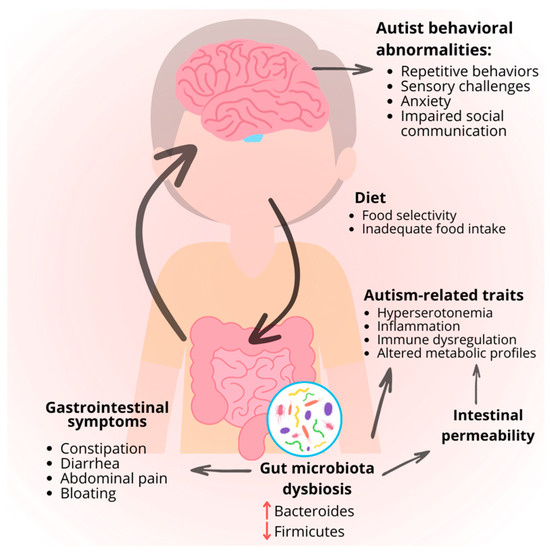Navigating emotional regulation through Autism Therapist methods
Navigating emotional regulation through Autism Therapist methods
Blog Article
Understanding the Impact of Behavioral Autism on Daily Life and Social Interactions
You could not understand how deeply behavioral autism influences day-to-day live and social interactions. Individuals on the spectrum often browse a world loaded with communication difficulties and sensory overload. These challenges can result in aggravation and isolation, affecting their connections and overall wellness. Understanding these subtleties is necessary for cultivating helpful atmospheres. What approaches can we apply to develop even more purposeful links and comprehensive spaces? The solutions could shock you.
Specifying Behavior Autism and Its Attributes
Behavioral autism, typically described as autism spectrum disorder (ASD), incorporates a range of conditions characterized by challenges in social interaction, communication, and recurring behaviors. You could observe that individuals with ASD typically struggle to interpret social signs, which can cause misconceptions in conversations. They might discover it difficult to establish eye call or participate in small talk, making social circumstances feel overwhelming.
Communication troubles can materialize in numerous means, from delayed speech development to a choice for using fewer words. By recognizing these qualities, you can cultivate a setting that promotes acceptance and encourages reliable interaction, assisting people with autism grow in their day-to-day communications.
The Range of Autism: Comprehending Irregularity in Actions
Autism spectrum disorder (ASD) isn't a one-size-fits-all medical diagnosis; it varies widely among people. You could observe that some individuals with ASD show mild signs, while others may face more substantial obstacles. This irregularity can materialize in habits, rate of interests, and sensory sensitivities. You may encounter individuals that are very spoken and involve quickly in conversations, while others may like singular tasks or connect non-verbally.
Additionally, the way people with ASD reply to sensory input can vary significantly; some could be bewildered by bright lights or loud sounds, whereas others prosper in stimulating atmospheres. The spectrum also consists of differences in social communications; some individuals might have a hard time to interpret social hints, while others navigate social setups with relative simplicity. Understanding this irregularity is crucial, as it aids you value everyone's one-of-a-kind experience and tailor assistance to their particular needs, cultivating an extra comprehensive atmosphere for every person.
Interaction Challenges Dealt With by People With Autism
When you communicate with people on the autism spectrum, you may notice their one-of-a-kind communication difficulties. They frequently encounter troubles with both nonverbal and verbal hints, which can influence their social interactions. Recognizing these barriers is crucial for promoting far better links and assistance.

Verbal Communication Problems
Numerous people on the autism range experience spoken interaction difficulties that can substantially influence their daily interactions. You may locate it challenging to reveal your thoughts, sensations, or requires plainly. This can lead to aggravation for both you and those around you, as misconceptions occur. You may have problem with initiating discussions, maintaining a topic, or comprehending nuances in speech. Commonly, you may like utilizing basic language or repeated phrases, which can limit your ability to take part in much deeper conversations. Your volume, speed, or tone could not align with social expectations, causing others to misinterpret your objectives. Recognizing these obstacles can aid you and your assistance network establish methods to enhance communication and foster better connections with others in your every day life.
Nonverbal Communication Barriers
Verbal interaction isn't the only challenge individuals on the autism range face; nonverbal communication barriers can be simply as considerable. You could find it hard to interpret body movement, facial expressions, and eye get in touch with, which are important for reliable communication. These obstacles can result in misconceptions or misinterpretations of social hints, making communications feel complicated or frustrating. You might have a hard time to share your own feelings through nonverbal methods, leaving others uncertain of your purposes or sensations. This detach can create feelings of seclusion and irritation. Recognizing these barriers is vital for fostering understanding and empathy in your interactions. By resolving nonverbal interaction, you can discover approaches to enhance your social experiences and boost your overall high quality of life.
Social Communication Effects
Social communications can frequently feel overwhelming due to the distinct communication difficulties encountered by people with autism. You might fight with analyzing social cues, making it difficult to understand mockery or body language. This can cause misconceptions or unpleasant minutes in discussions. Furthermore, starting and preserving discussions might feel challenging, creating stress and anxiety in social situations. You might favor organized environments, making spontaneous communications uneasy. It's also common to experience trouble in taking part in tiny talk, which can prevent forming new relationships. Recognizing these obstacles can aid you find approaches to boost communication, such as exercising social skills in risk-free setups or using aesthetic aids - Autism Behavioral Therapy. Comprehending your requirements permits you to browse social communications with higher confidence and convenience.
Social Communication and Partnership Building in Autism
While structure relationships can be testing for individuals with autism, recognizing their special point of views and communication designs can foster purposeful links. You might observe that numerous people on the range favor straight communication and may deal with social signs or tiny talk. By being uncomplicated in your interactions, you can help produce an environment where they feel comfy.
Engaging in shared rate of interests can additionally offer as a bridge to deeper connections. Whether it's a hobby, a preferred show, or a mutual enthusiasm, these usual strings can open doors to relationship.
Day-to-day Live Regimen: Navigating Obstacles and Techniques
Steering day-to-day live regimens can be especially testing for people with autism, particularly when unexpected adjustments occur. You could locate here convenience in having a structured schedule, as it helps you anticipate what's following. It's typical to feel distressed or overloaded when interruptions happen. To browse these obstacles, take into consideration applying visual routines or checklists. These tools can offer quality and reassurance.
Establishing a regimen that includes sensory breaks can likewise be useful. This aids create an understanding atmosphere.
Last but not least, technique mindfulness techniques to handle stress and anxiety and stress and anxiety. Basic breathing workouts or grounding methods can make a substantial difference. By integrating these strategies, you can improve your daily regimen and reduce interruptions, making life feel extra manageable.
Staminas and Capabilities of Individuals on the Autism Range
Recognizing day-to-day life regimens is just one aspect of the autism experience. Many individuals on the autism range have exceptional staminas and capacities that establish them apart.
Additionally, your memory skills usually beam, specifically in areas of rate of interest. Autism Behavioral Therapy. This flair for keeping info can make you a valuable resource in areas like art, science, or technology. You might additionally display strong aesthetic reasoning, enabling you to visualize intricate ideas and resolve problems artistically
Furthermore, your unique viewpoint on the globe can foster compassion and understanding in others, enhancing social interactions. Accepting these strengths not just increases your self-confidence however likewise helps others value the diverse skills you bring to the table.
Developing Comprehensive Environments for People With Autism
Creating comprehensive atmospheres for individuals with autism starts with creating sensory-friendly spaces that accommodate their distinct demands. You can additionally promote opportunities for social interaction, assisting to construct friendships and connections. By making these changes, you'll add to a more inviting environment for everyone.
Designing Sensory-Friendly Spaces
While creating sensory-friendly areas, it's crucial to reflect on the unique needs of people with autism. Incorporate quiet areas where people can pull back and charge when overwhelmed. Include visual routines or clear signage to help individuals browse the space confidently.
Advertising Social Communication Opportunities
Creating sensory-friendly spaces not only addresses individual convenience however also sets the stage for meaningful social interactions amongst people with autism. Urge peer mentoring, pairing individuals with autism with encouraging peers that can guide them via social scenarios. By implementing these methods, you can boost social opportunities, aiding individuals with autism develop relationships and enhance their social abilities in a secure, welcoming environment.

Frequently Asked Questions
How Can Buddies Assistance Somebody With Behavioral Autism?
You can sustain a close friend with behavioral autism by holding your horses, listening actively, and respecting their boundaries. Take part in activities they enjoy, communicate openly, and develop a comfy setting where they really feel valued and recognized.
What Resources Are Readily Available for Parents of Kid With Autism?
You can check out different resources for parents of children with autism, including support groups, academic sites, and neighborhood neighborhood solutions. Getting in touch with various other parents can additionally supply valuable understandings and shared experiences to aid browse difficulties.
Can Behavioral Autism Change Over Time?

Yes, behavioral autism can alter with time. You may see shifts in communication, social skills, and habits as your child grows. Early treatment and support commonly play crucial duties in these developmental modifications.
Just How Do Sensory Sensitivities Affect Life?
Sensory level of sensitivities can make day-to-day experiences overwhelming. You might fight with loud sounds or brilliant lights, bring about anxiety or evasion. Locating settings that fit your demands can substantially boost your convenience and overall day-to-day live.
What Prevail Misconceptions Regarding Behavioral Autism?
You might believe behavior autism just impacts interaction abilities, however it's even more complicated. Numerous assume individuals lack empathy or knowledge, which isn't real. Understanding these mistaken beliefs aids foster approval and support for those on the spectrum.
Behavioral autism, often referred to as autism spectrum disorder (ASD), includes a variety of problems defined by challenges in social communication, communication, and repetitive habits.Social communications can frequently really feel frustrating due to the unique communication obstacles faced by individuals with autism.Designing sensory-friendly areas not just addresses individual convenience yet also establishes the stage for significant social interactions amongst people with autism. Motivate peer mentoring, combining people with autism with supportive peers that can direct them via social circumstances. By implementing these strategies, you can improve social chances, helping individuals with autism construct friendships and enhance their social abilities in a risk-free, inviting environment.
Report this page